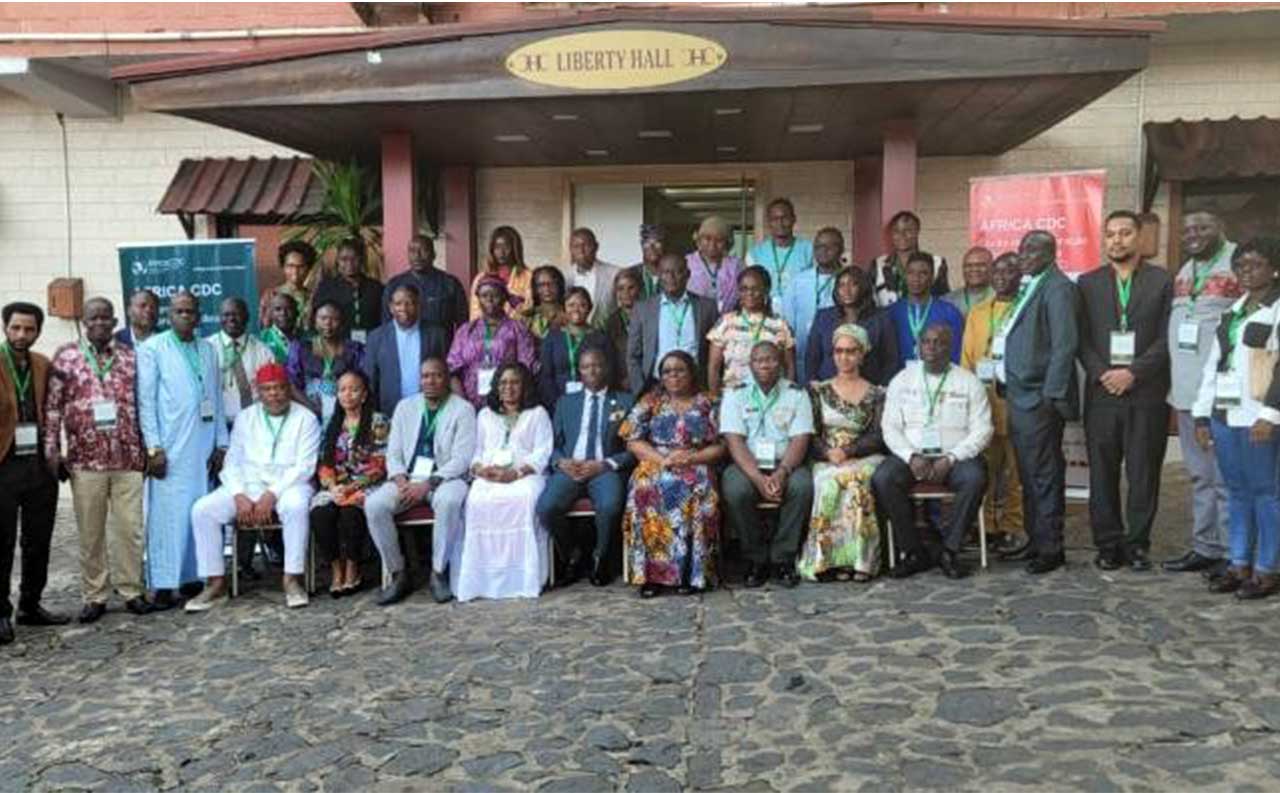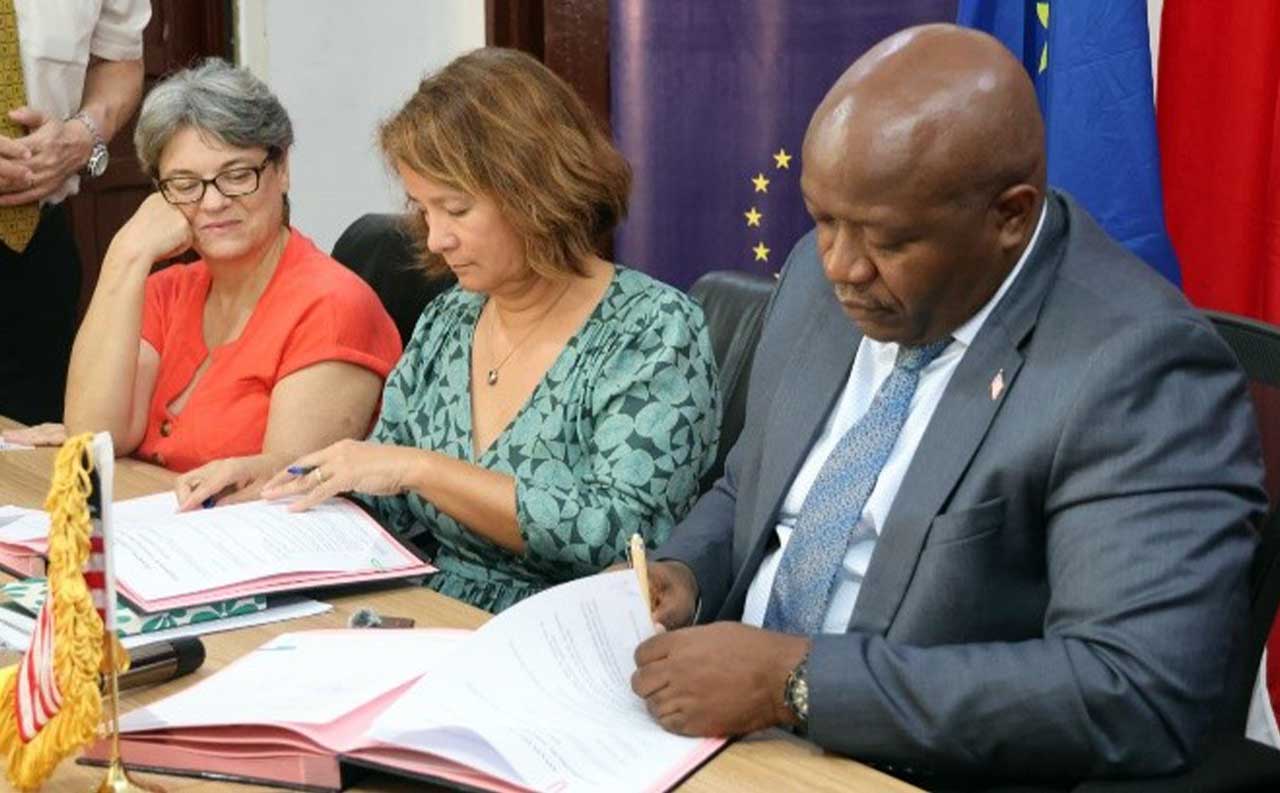Fifteen West African Member States have begun a three-day meeting in Liberia to strengthen the health security of the region through enhanced Risk Communication and Community Engagement (RCCE).
The workshop, which runs from Tuesday, June 17 to Thursday, June 19, 2025, is under the theme: “Strengthening Risk Communication and Community Engagement System for Effective Public Health Emergency Preparedness and Response.”
During the three-day sittings, participants will be equipped with knowledge and skills in managing rumors, misconceptions, mis, and disinformation during public health emergencies, and gain an understanding of the role of RCCE in strengthening Africa’s Response to public health emergencies, among others.
Speaking at the start of the workshop on Tuesday, Dr. Kokuo Alinon, Africa CDC Regional Director, said, “We convene at a moment when our region is once again being tested; this time by a re-emerging threat- Mpox. Over the past months, we have seen a worrying increase in Mpox cases reported across several countries in West Africa.”
According to him, the Mpox outbreak is not only a reminder of the ongoing vulnerability to infectious diseases but also a call to action. He added that communities are facing both the biological risk of transmission and the social risk of fear, misinformation, and stigma.
Dr. Alinon explained that in some countries, false rumors linking Mpox to witchcraft, moral deviance, or vaccine conspiracies have hindered early detection and response, while in others, limited information flow has allowed speculation to fill the gap.
“This is where RCCE becomes lifesaving. When communities are informed, engaged, and equipped to act, the outcome is always better. When we listen, we lead,” he added.
The Africa CDC Regional Director revealed that RCCE is not a side activity, but central to epidemic response and preparedness; it is what connects science to society, what builds trust between institutions and communities, and what ensures that the right message is delivered, by the right people, at the right time.
“This workshop represents a critical step forward. Over the next three days, we will reflect on lessons learned from country experiences, strengthen practical skills in social listening and infodemic management, align our national priorities with the West Africa Regional RCCE Strategy (2024–2028), and most importantly, launch a Community of Practice that will help us stay connected, share resources, and learn from one another beyond this room,” he said.
For her part, Liberia’s Deputy Minister of Health, Dr. Catherine Thomas Cooper, told the gathering that Liberia has faced significant public health challenges as well as the entire region, including the devastating Ebola outbreak and COVID-19 in recent years.
Dr. Cooper said that the experiences have underscored the critical importance of effective risk communication and community engagement in managing public health emergencies and promoting the overall health of the population.
“The country’s unique geographical, social, economic, and cultural landscape presents most challenges and opportunities for risk communication efforts,” she stated.
She revealed that the country seeks to strengthen preparedness for future challenges and create a stronger response and inclusive ecosystem in West Africa that will contribute to improving health outcomes, enhance public health trust in various systems, and increase the capacity to manage health challenges effectively.
Speaking on behalf of the Executive Director of the ECOWAS Regional Centre for Surveillance and Disease Control (RCSDC), Madam Marianne Bonkano Laurent Comlan said that the gathering underscores the collective commitment of the fifteen African Member States to strengthening the health security of the region through enhanced Risk Communication and Community Engagement (RCCE); RCCE is a cornerstone of effective health emergency preparedness and response.
Coleman noted that the RCCE empowers communities, builds trust, and facilitates the timely dissemination of accurate information, factors crucial for combating ongoing outbreaks of Mpox, Measles, Cholera, and Lassa Fever while preventing future crises.
“In the context of our work, we are also confronted with the challenge of infodemics, an overwhelming surge of information, misinformation, and disinformation that can undermine our public health efforts. These threats not only compromise health outcomes but also foster stigmatization and erode public trust. Managing this infodemic requires us to leverage effective communication strategies, foster community engagement, and build resilient information environments,” Madam Comlan said.
Accordingly, the strategic efforts during the three days, including the Regional Strategy on RCCE (2024-2028), aim to harmonize approaches, strengthen capacities, and foster collaboration among nations and partners.
She applauded Africa CDC for the remarkable achievements of the ECOWAS RCCE Executive Members, stating that their unwavering dedication and strategic leadership have successfully fostered strong engagement with partners, such as Africa CDC.



